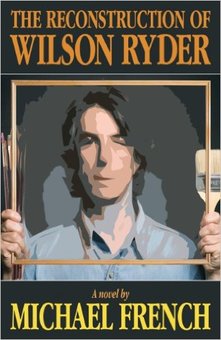
Every year a reader can choose from perhaps TEN thousand new, well-written novels, but ONLY A FEW MAY BE privileged. Author name recognition, trendy genres, stellar reviews, or a publisher’s marketing budget often point our interest in one direction or another. Many writers who aren’t household names covet fame and money, but the stories that are born in their minds can’t always be shaped to meet the marketplace (if we even know what that sweet spot is). The author might think that his or her main character or plot has universal appeal, and the writing mechanics are solid, yet every story, every writing style, possesses its own DNA. If your child is born with blue eyes, they can’t be turned to brown. If blue eyes are out of fashion, so be it.
Against lottery-like odds, however, a little-known or unknown author sometimes scores a “winner’s edit.” Best sellerdom and money follow. This is terrific for the publishing world and the author and author’s agent. The consequences for other writers are less certain. A recent article in the Sunday New York Times Magazine noted, in our “keeping score” pop culture of the last fifteen years, that there can only be one winner in The Amazing Race, Survivor, and a dozen other reality TV shows. The other contestants, of which there are many, week after week, get the “loser’s edit.” Writing is no different. For every bestseller there are legions of books that most readers have never heard of, and thus make no time for, despite the growing flood of author social media campaigns. A lack of credentialed book reviewers willing to dip their toes into the waters of quality small publishers only makes things more frustrating.
I have a half dozen writer friends who identify with the above scenario, and we all know it does no good to complain. If a book becomes a best seller, it surely deserves the honor, ipso facto. But it does not follow that if a book does not climb to the top of some list, that it deserves author despair or “what did I do wrong?” second guessing. My latest novel, The Reconstruction of Wilson Ryder, is no best seller, yet the book has its fans, along with good reader reviews on Amazon and Goodreads that were not coerced by the author. Any writer is forever grateful for a good review, and should be as well for informative criticism. One friend volunteered that he thought a secondary character in Wilson Ryder was “too thin” (I tried to explain that this character was more or less a placeholder), while another admitted that a story about a boy with a badly burned face, and his sister who suffers an equally difficult fate, made him feel bad and he had to put the book down. Further, he could not recommend it to others. I appreciated the feedback, but I considered that if I had to write the novel over, even if I knew what my friends’ reactions would be, I would change very little. If you don’t love your plot and characters, if your story is not something only you could have written, why write it at all? Public approval and validation are necessary on some level for most of us, but they don’t replace self-respect. To me, Wilson Ryder displays an unflinching loyalty to its main character, the artist Wilson, whom I root for from childhood to adulthood, and through whose eyes we learn quite a bit about contemporary art, artists and the marketplace. If Wilson were flesh and blood, he would be my good friend, maybe one of my best.
1 Comment
Clare Mannion
8/9/2019 07:31:55 am
Thank you Michael - I am ordering this - right this minute!! Don’t know how I missed knowing of it - c.
Reply
Leave a Reply. |
MRF BlogMichael's thoughts on writing, politics and everything in between. Archives
November 2023
Categories
All
|
|
Michael R. French graduated from Stanford University where he was an English major, focusing on creative writing, and studied under Wallace Stegner. He received a Master's degree in journalism from Northwestern University. He later served in the United States Army before marrying Patricia Goodkind, an educator and entrepreneur, and starting a family.
|

